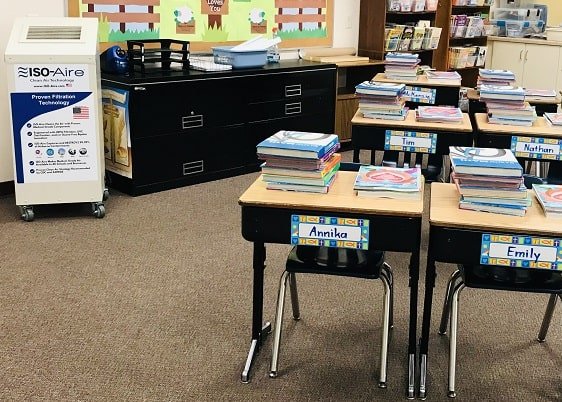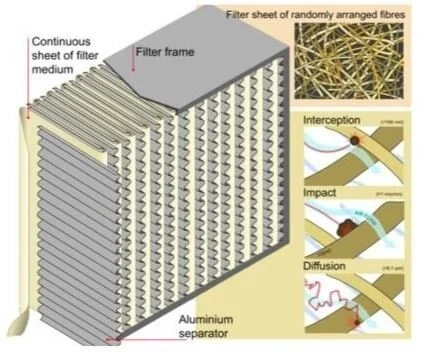Johns Hopkins Study: School Ventilation Necessary to Reduce COVID-19 Transmission, Improve Learning
Studies have found that improved indoor air quality promotes student learning while also protecting students from the spread of COVID-19.
A May 2021 report authored by a senior team of scholars, engineers and policy leaders prioritizes the importance of improved indoor air quality (IAQ) in America’s schools and strongly recommends that students, teachers, and staff in K-12 schools should have the “healthy air they deserve.”
Published by Johns Hopkins Center for Health Security, the 46-page comprehensive analysis, highlighted in this news story, is particularly timely as K-12 leaders, teachers, and health experts look ahead to reopening their classrooms safely for students and staff in the fall.
Taking collective, proactive steps to bring healthy air to America’s classrooms is at the heart of the in-depth overview. Their recommendations include leveraging existing funding resources available through the American Rescue Plan to bring clean air to school buildings for two key reasons:
To maintain a safe indoor environment for school communities and reduce transmission of COVID-19, emerging variants and future epidemic outbreaks;
To improve student learning.
High Efficiency Particulate Air filters - or HEPAs - are a recommended COVID-19 mitigation strategy for schools cited in a comprehensive report issued last month by Johns Hopkins Center for Health.
Page eight of the report specifically recommends that schools utilize HEPA air filtration for supplemental protection:
“School administrators and decision makers should purchase HEPA air filtration units to be placed in classrooms and common occupied spaces. Even if ventilation in a school already meets current building standards (many do not), additional air filtration from a portable device can help reduce the potential for SARS-CoV-2 transmission. Portable HEPA air filters are easy to use, HEPA filtration is a proven technology, and the units have the advantage of being always “on.”
Greenfield Public Schools in Greenfield, Mass. recently installed 21 ISO-Aire portable units equipped with medical-grade HEPA filtration to help protect their school community in larger, high-traffic spaces such as the lunchroom, library, and auditorium.
Commercial ISO-Aire™ utilizes medical grade, 12-inch deep HEPA filters in our powerful portable and hanging units to help capture 99.99% (at 0.3 microns) of pathogens and pollutants.
Additional recommendations include calling for an IAQ federal task force to establish best practices and guidelines specific to school facilities and to discontinue “deep clean” disinfection measures given surface transmission of COVID-19 is less likely than originally thought.
In summary, the report notes:
A broad conclusion of this research is that the benefits to investing in healthy air in schools have the potential to outlast the COVID-19 pandemic. Improved ventilation may give children and school staff healthier indoor air quality for decades in the future, providing a healthier environment for nonpandemic times and potentially reducing risks in future infectious disease outbreaks.
For information on bringing ISO-Aire™ clean air technology equipped with medical-grade HEPA filtration to your school, child care center, small business or facility, contact our team of experts today.



